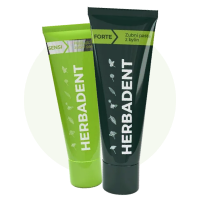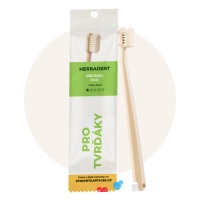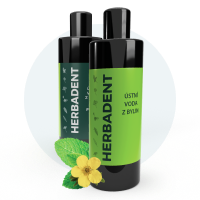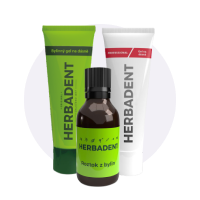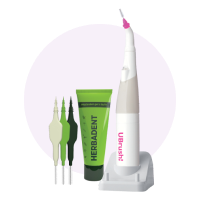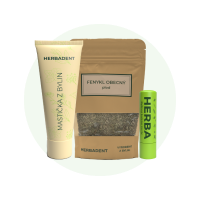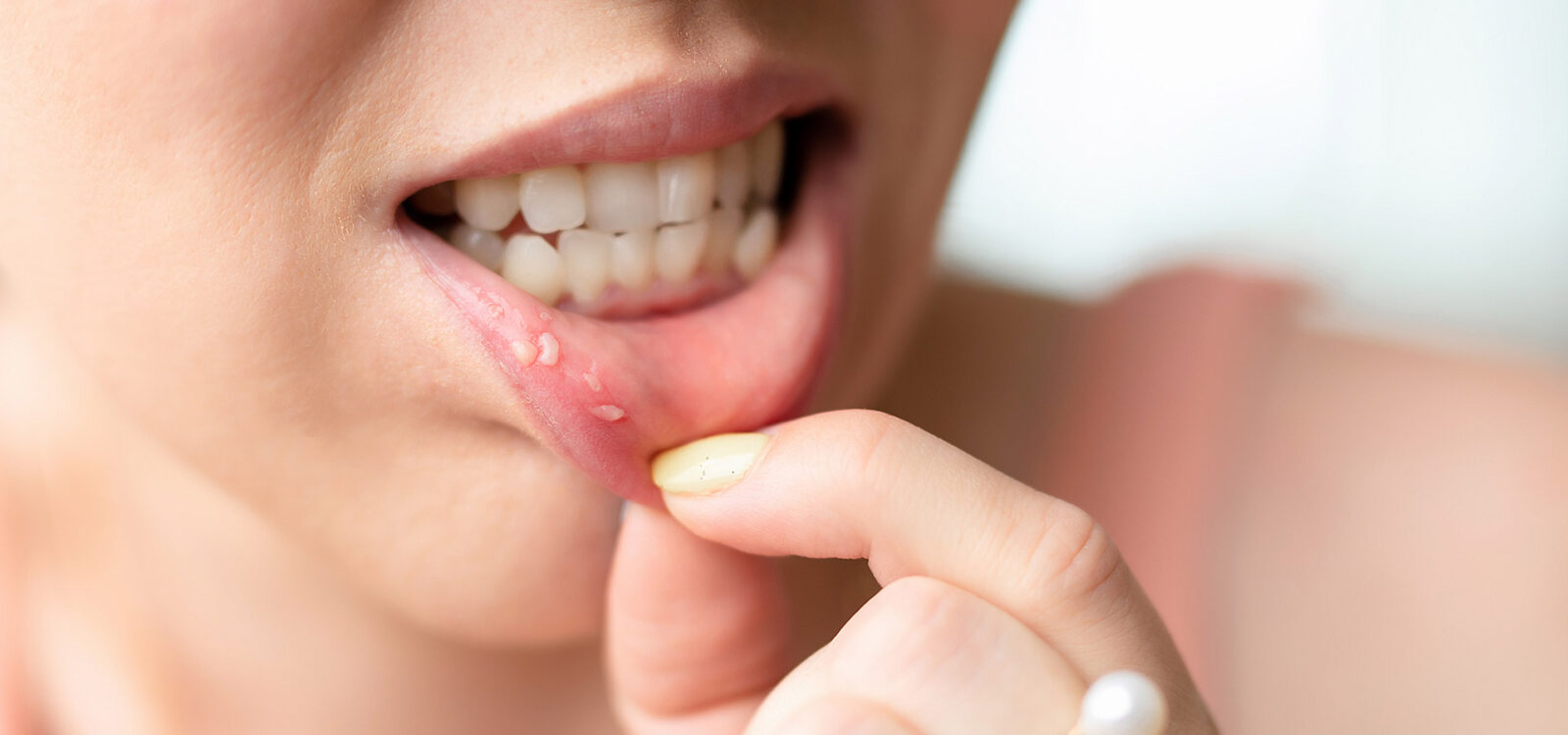Canker Sores
A recent survey conducted by an independent research agency revealed that over 60% of people in the Czech Republic experience canker sores at least once a year. Nearly half of them suffer from them even more frequently.
How to deal with this unpleasant situation remains an ongoing question. Let’s take a closer look at this issue.
Etiology (Causes of Canker Sores)
The exact cause of canker sores has not yet been fully clarified, but they may be related to iron or vitamin deficiencies, immune and autoimmune processes, or specific food consumption. Other potential causes include unsuitable oral hygiene products (such as foaming agents in toothpaste, improper or damaged toothbrushes), stress, mechanical injuries, and genetic factors.
Canker sores are not an infectious disease and cannot be transmitted from person to person.
Occurrence
Canker sores most commonly appear in the front part of the oral cavity and on the tongue, but they can also develop on the palate.
A canker sore (blister) is the initial stage of the condition. It then bursts and transforms into an ulcer, with its base slightly below the mucosal surface. This stage is accompanied by intense pain and heightened sensitivity. Multiple canker sores can also cause bad breath.
Canker sores vary in size, which influences the healing process—small ones typically heal within 1-2 weeks, while larger ones (up to 10 mm) may take up to 6 weeks.
Treatment
If the exact cause of canker sores is unknown, causal treatment is not possible. Instead, treatment focuses on alleviating the most bothersome symptoms.
The primary goals are pain relief, preventing or reducing secondary infections, and promoting quick healing without complications.
Smaller canker sores usually heal on their own, but patients can aid the process with appropriate treatments. In more severe cases, consulting a specialist is essential.
For self-treatment, we recommend these three key steps:
1. General and Supportive Care, Including:
- Adequate intake of vitamins (especially B-group vitamins), iron, and a varied diet
- Boosting the immune system, getting sufficient sleep, and spending time outdoors
- Avoiding irritation of the oral cavity from hard or spicy foods or mechanical injury
- Reducing stress
2. Proper and Sufficient Oral Hygiene
- Gentle yet thorough brushing with a soft toothbrush and non-irritating products
- Using the correct and effective brushing technique
- Choosing natural toothpaste free from chemical foaming agents and dyes
- Rinsing the mouth with herbal infusions (such as chamomile, agrimony, sage, fennel, or clove) or using a gentle herbal mouthwash
3. Local Treatment
- Using natural herbal remedies with anesthetic and antiseptic properties to relieve pain
- Following expert recommendations or opting for natural products, which are increasingly popular due to their effectiveness
- Choosing a product that does not irritate the mucous membrane and can be applied locally, such as with a cotton swab
- Supporting regeneration to ensure the healing process is as quick and comfortable as possible
And last but not least – Prevention
It is difficult to determine the best form of prevention for canker sores, but some general guidelines can help with overall health and reducing their occurrence.
Maintain a healthy lifestyle, eat a varied and high-quality diet to ensure sufficient intake of vitamins and iron, strengthen your immune system, and practice proper oral hygiene.
And most importantly, try to reduce or at least minimize stress.

